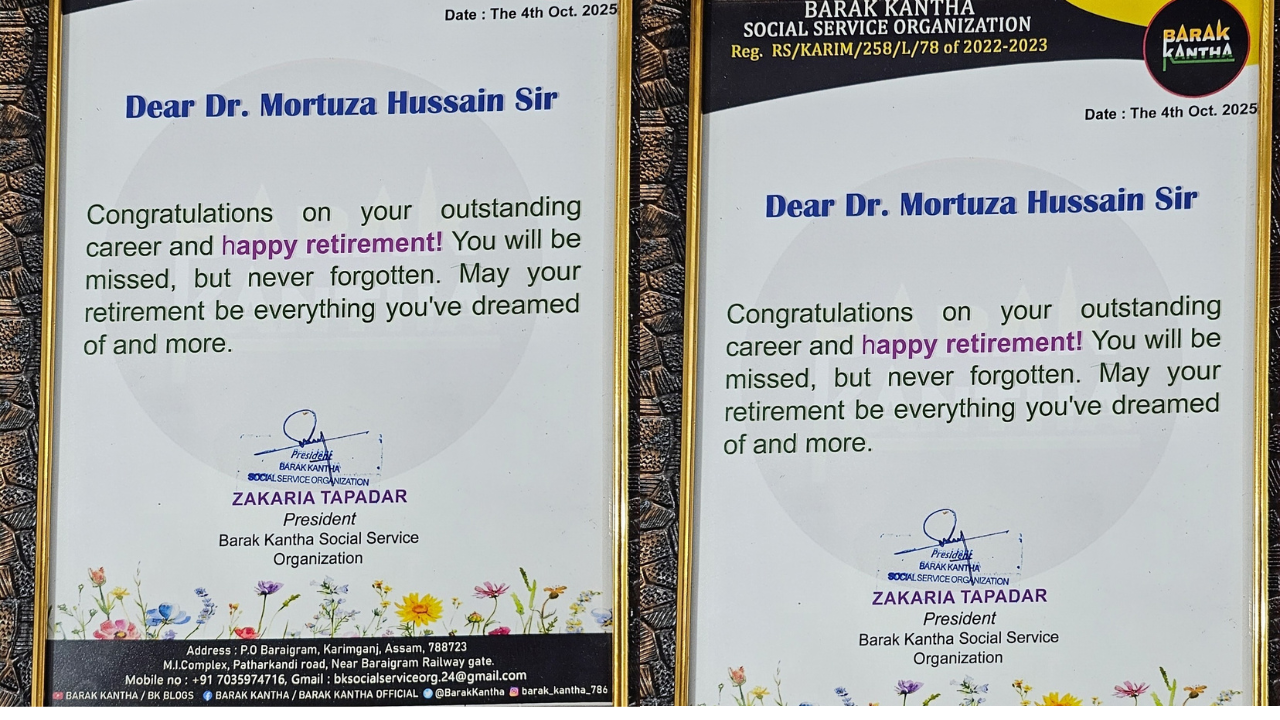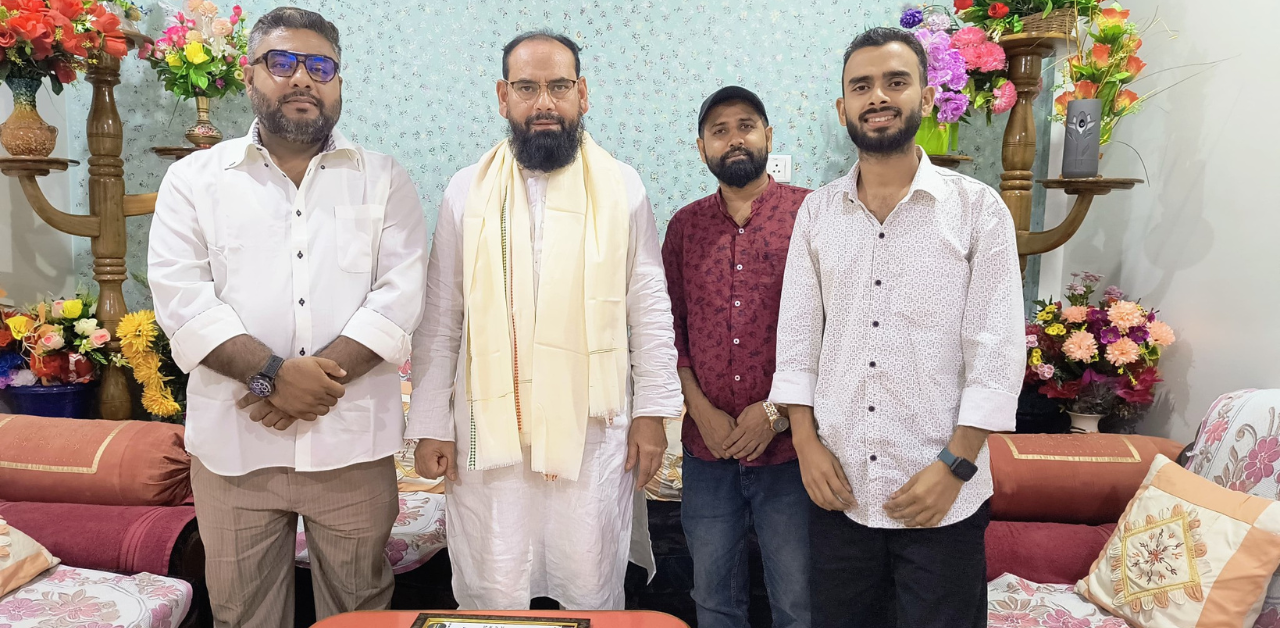Dr Mortuza Hossain Political Stance and Election Plans North Karimganj Elections

Dr Mortuza Hossain — Prospective North Karimganj Candidate The entry of an academician into politics always garners public attention—especially after 33 years of dedicated service in education and local community engagement. Dr. Mortuza Hossain, the former principal of NC College, Badarpur, has recently stated that he would only consider contesting elections if nominated by a secular, non-religious party and if the community requests his service. This stance is a critique of conventional political practices that emphasize monetary influence, expensive campaigns, and power-seeking over true public service.
Reference / Source BK Blogs
Conditions for Candidacy: Dr. Hossain clearly mentioned that he will not affiliate with any party connected to religious or community-based agendas; he will consider participation only under secular organizations focused on social service.
Political Ethics: He strongly criticized the practice of purchasing tickets and excessive campaign spending, emphasizing that genuine representation should be based on commitment to the public, not financial leverage.
Local Affiliation: His deep connection to Badarpur-Karimganj and concerns about delimitation and constituency development have made this discussion relevant for local politics.
Q&A
Has Dr. Hossain officially declared his candidacy?
No official nomination has been made public. He will consider elections only if his conditions of secular, community-driven mandate are met.Will he join any established party?
His condition is clear: a secular party without religious affiliations. There is no public evidence of him joining any current party Badarpur constituency development / Barak Kantha
Politics: Will Dr. Mortuza Hossain Contest Service and Education: Priorities and Proposals

With over three decades in education, Dr. Hossain prioritizes school and college improvement, institutional hygiene, and community-driven development. If elected, his primary focus will include: (1) maintaining cleanliness and refurbishing educational institutions, (2) establishing local leadership groups for community projects without total dependence on government funds, and (3) generating employment and self-reliance opportunities for youth. This approach encourages practical development beyond mere government schemes.
Key Proposals
Institutional Hygiene & Rebranding: Schools will be maintained like temples and mosques in the community—paint, repairs, and monitoring committees to improve both infrastructure and engagement.
Community Leadership Groups: Responsible volunteers from every neighborhood will run small-scale development projects independently of government funds.
Youth Employment Programs: Initiatives such as collective rice trade, small craft clusters, and practical entrepreneurship models will create sustainable self-employment opportunities.
Q&A
Are these plans only theoretical or backed by experience?
Dr. Hossain’s extensive leadership experience as NC College principal supports practical implementation of these plans.What if government funding is unavailable?
The model relies on local resources, community contributions, and small grants, with government support being supplementary.
Dr Mortuza Hossain education reform,” “Badarpur school improvement project,” and “Karimganj youth employment” in headings and meta tags.
Community Response and Constituency Context
A local leader’s potential candidacy is heavily influenced by population demographics, constituency delimitation, and community sentiment. In Barak Valley (Badarpur/Karimganj), changes in delimitation and constituency size have sparked debates, making the discussion of Dr. Hossain’s prospective election highly relevant.
Key Analysis
Delimitation and Representation: Constituency numbers did not increase as expected, which may affect local political dynamics and voter expectations.
Multicultural Outlook: Dr. Hossain has consistently emphasized equal treatment for all communities, showcasing inclusivity—a key factor in regional politics.
Public Support: Farewell messages and social media posts indicate respect and affection from the local populace; however, organized political support is essential for a real campaign.
Q&A
Does the community genuinely want him as a candidate?
Positive signals exist, but formal backing from organized groups and parties is still required.How does delimitation affect his prospects?
Changes in constituency boundaries can alter voter composition, making strategic local analysis important.
If Elected: Roadmap, Priorities, and Challenges
This section outlines Dr. Hossain’s practical roadmap: (1) improving educational institutions, (2) forming community leadership groups, and (3) creating youth employment opportunities. It also addresses potential challenges and solutions for effective constituency service.
Roadmap (Three-Year Priority Plan)
Year 1: Survey schools, perform quick fixes, repaint, and establish local monitoring committees using volunteer groups.
Year 2: Launch youth employment pilot projects (rice trading, small craft units, classroom training) and expand digital skills programs.
Year 3: Scale successful models with government integration and infrastructure funding, while maintaining community oversight.
Challenges and Solutions
Resource Limitation: Utilize community contribution, CSR, and small grants.
Political Opposition / Polarization: Emphasize secular, cross-community approach.
Organizational Weakness: Transparent monitoring, pilot-based expansion, and empowering local leadership.
Q&A
What if he does not contest?
He can still contribute via NGOs and community initiatives, retaining substantial local influence.Where to verify these claims?
NC College public pages, social media posts, and local news archives. Official election announcements will follow if candidacy is confirmed




Pingback: Pratibha Sahu Biography Body Career Dance Films Awards More